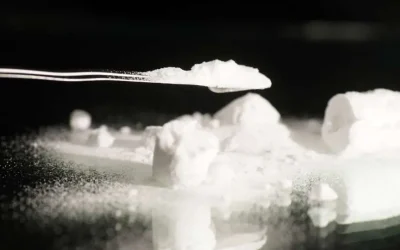Last updated: October, 2025
Why Are Habits So Hard to Break? Understanding Dependency
Habit patterns are deeply rooted in the way the human brain functions. For anyone experiencing dependency on alcohol, drugs, gambling, gaming or similar behaviours, the struggle often lies not in a lack of will but in how unconscious systems override conscious decisions. This article explains why habits become dependencies, how automatic mechanisms work and what practical steps exist to regain control.
Understanding the Two Systems That Drive Behaviour
Behaviour emerges from the interaction of two systems in the brain: one is largely automatic, the other conscious and deliberate.
- The automatic system responds quickly, based on impressions, feelings and past experience. It requires minimal effort and often runs on autopilot.
- The conscious system operates more slowly, uses reflection and reasoning and is capable of modifying or overriding automatic responses.
In the context of dependency, the automatic system often becomes dominant while the conscious system struggles to steer behaviour in a different direction.
How Automatic Mechanisms Sustain Dependency
Learning a new behaviour can feel effortful at first. With repetition, actions become automatic. The dependency cycle often exploits these automatisms through three key pathways:
- Automatic attention: The brain begins to focus intensely on cues related to the habit (for example, people, places or objects associated with substance use or gambling).
- Automatic memory links: Memories of relief or reward from past use or behaviour become tied to environmental cues or emotional states, making a triggering stimulus harder to avoid.
- Automatic behaviour: Situational triggers prompt behaviour before conscious thought has time to intervene — leading to the “habit takes over” scenario.
When these mechanisms converge, the behaviour feels instinctive and the conscious system must work much harder to regain control.
The Rider and the Horse Analogy
Picture the automatic system as a powerful horse and the conscious system as the rider. The horse is strong, fast and reacts instinctively. The rider steers, plans and chooses direction. Under stress or dependency the horse bolts toward reward and the rider struggles to keep hold. Although the rider is in control, constant practice, planning and awareness are needed to regain mastery over the horse.
Why Dependency Feels Unbreakable
Because the automatic system requires very little conscious effort, and because dependency uses those deeply embedded circuits, breaking free becomes challenging. Factors such as fatigue, stress or emotional pain weaken the conscious system, making it harder to override habits. In effect, the rider becomes exhausted or distracted while the horse runs free.
Practical Strategies to Regain Control
Although the process is demanding it is not impossible. Some practical steps can help shift the balance:
- Focus attention ahead: Anticipate high-risk situations (social events, certain friends, specific times of day) and plan responses in advance.
- Identify triggers: Notice what comes before the habit (a sound, a feeling, an environment). Recognising these antecedents helps the conscious system intervene.
- Manage stress and physical tension: Since the automatic system takes over when the conscious system is weakened, enhancing sleep, nutrition and exercise strengthens self-control.
- Build new routines: Repeated new behaviours can gradually replace old ones. The brain adapts gradually so patience and consistency matter.
- Seek professional support: In the case of dependency involving substance misuse or serious behavioural patterns, clinical environments provide medical and therapeutic support, personalised programmes and a safe space to reset.
Relapse as Part of the Journey
Relapse does not signal failure. It signals learning. Because the automatic system remains sensitive, returning to old patterns can happen even after a long change process. Each relapse offers insight into remaining triggers and vulnerabilities. With guidance, these experiences become stepping-stones toward deeper resilience.
Rewriting the Habit Story
Breaking a dependency means re-training the relationship between automatic impulses and conscious choices. It takes time, self-compassion and the right environment. Recognising how the brain’s systems work is not about blame — it’s about empowerment. For individuals seeking a high-quality recovery pathway in a tranquil setting, a facility that combines clinical expertise with personalised care and holistic support can provide the structure needed for lasting change.
If you or your loved ones are exploring options, our centre offers tailored programmes of detox, therapy and long-term support in a private and ecological setting. Contact us today and take the next step toward lasting freedom.
FAQ – Breaking Dependency
Because dependency often relies on automatic brain processes that reward familiar behaviours. Even when the conscious system recognises the harm, the automatic system triggers patterns through well-established neural links. Over time those links become highly resistant to change unless rewired with structured support and repeated effort.
Yes, habits can change permanently when new behaviours replace old ones and the brain learns new reward pathways. Consistency, therapeutic guidance and supportive routines matter more than willpower alone. Gradual change and self-compassion greatly improve chances of lasting transformation.
Stress, fatigue or strong emotions weaken the conscious system that regulates automatic impulses. When that system is overwhelmed the automatic reactions take over, increasing the risk of relapse. Managing physical and mental health helps maintain control over habit triggers.
A habit becomes a dependency when a person finds it difficult to stop despite negative consequences, experiences strong cravings or develops tolerance or withdrawal symptoms. Dependency means the automatic system drives behaviour more than conscious intention.
Identifying triggers, preparing ahead for high-risk moments, strengthening self-care (sleep, nutrition, movement), and seeking professional help are key. Structured programmes offer medical supervision, therapy and holistic support that align brain and behaviour toward healthy change.









